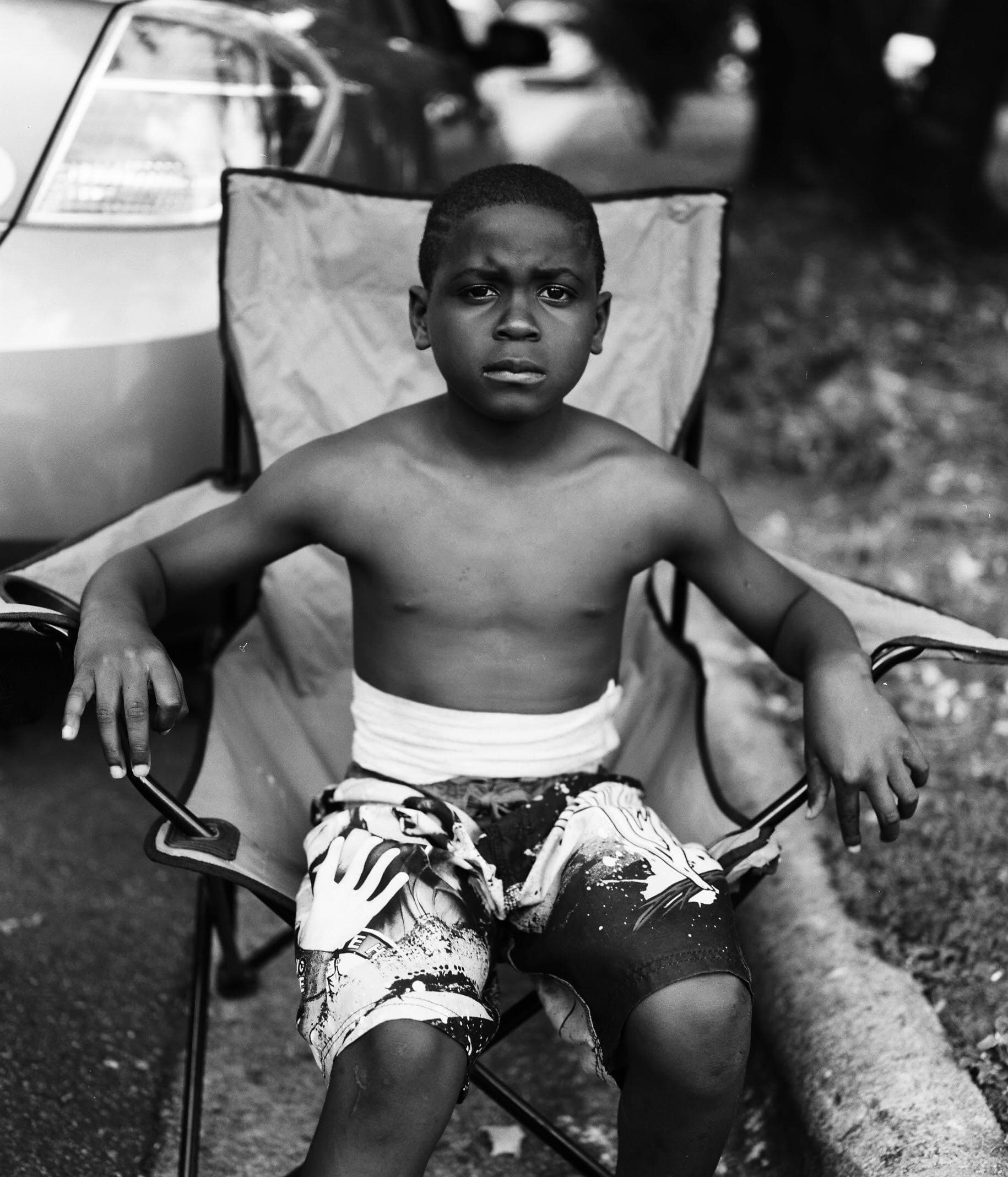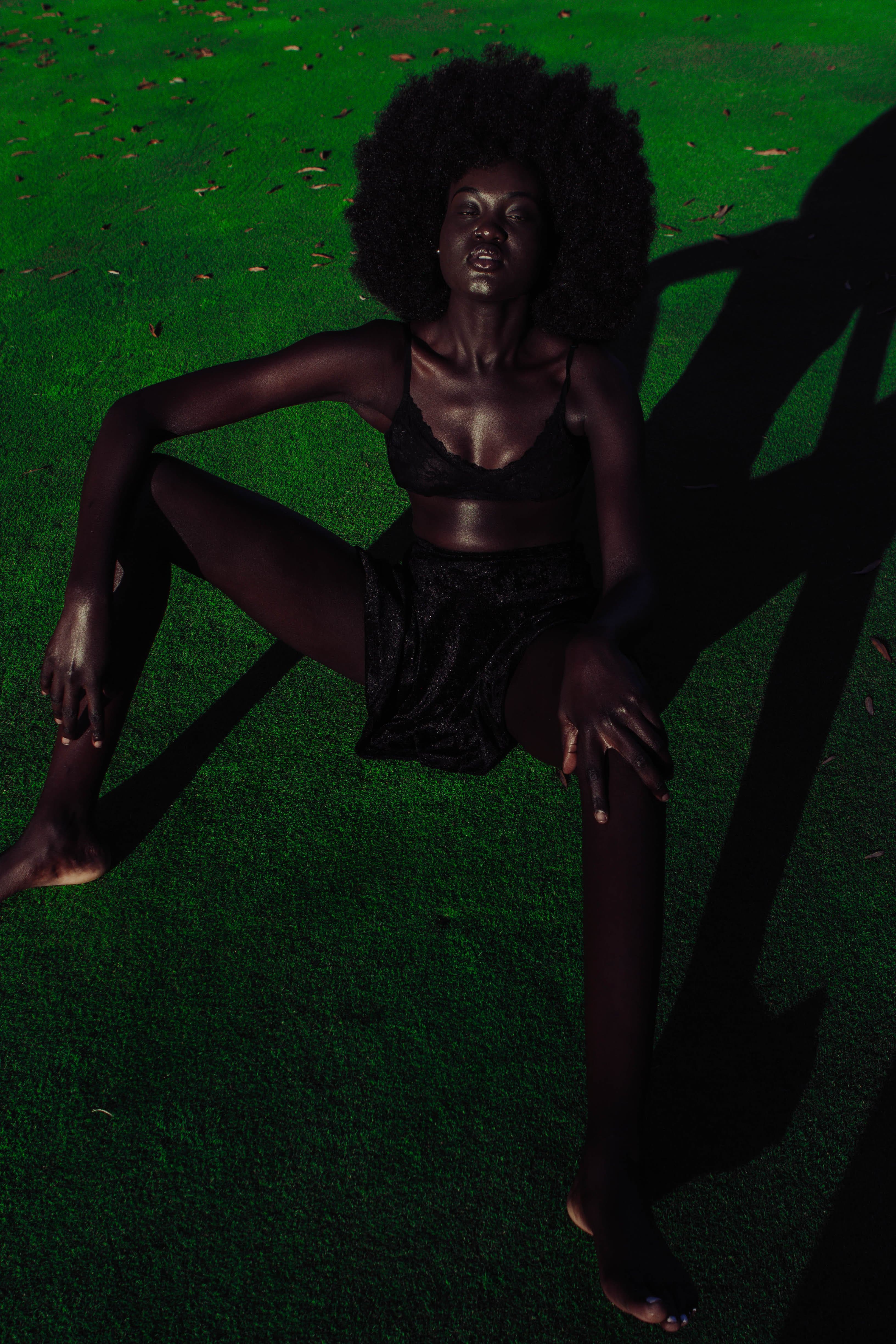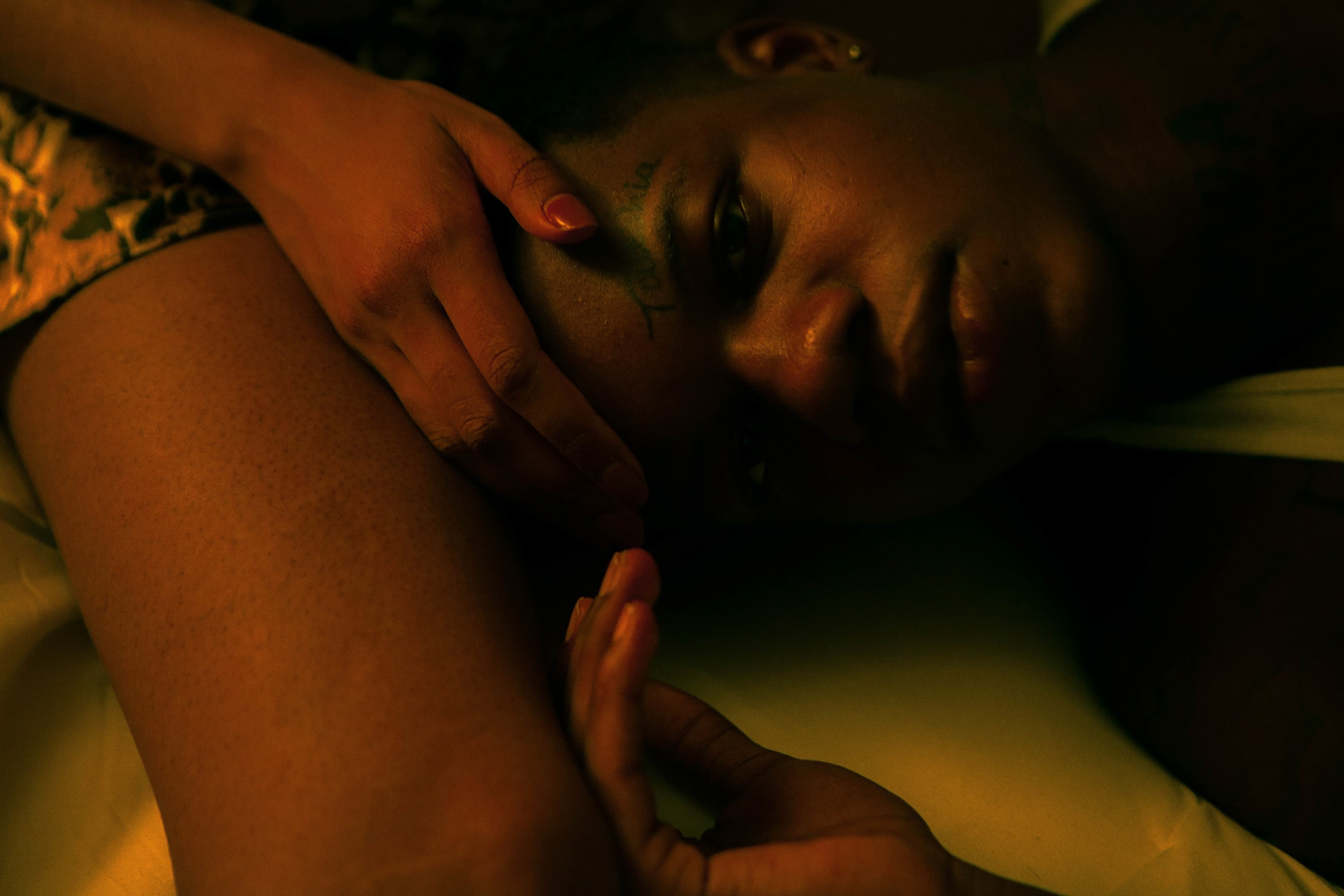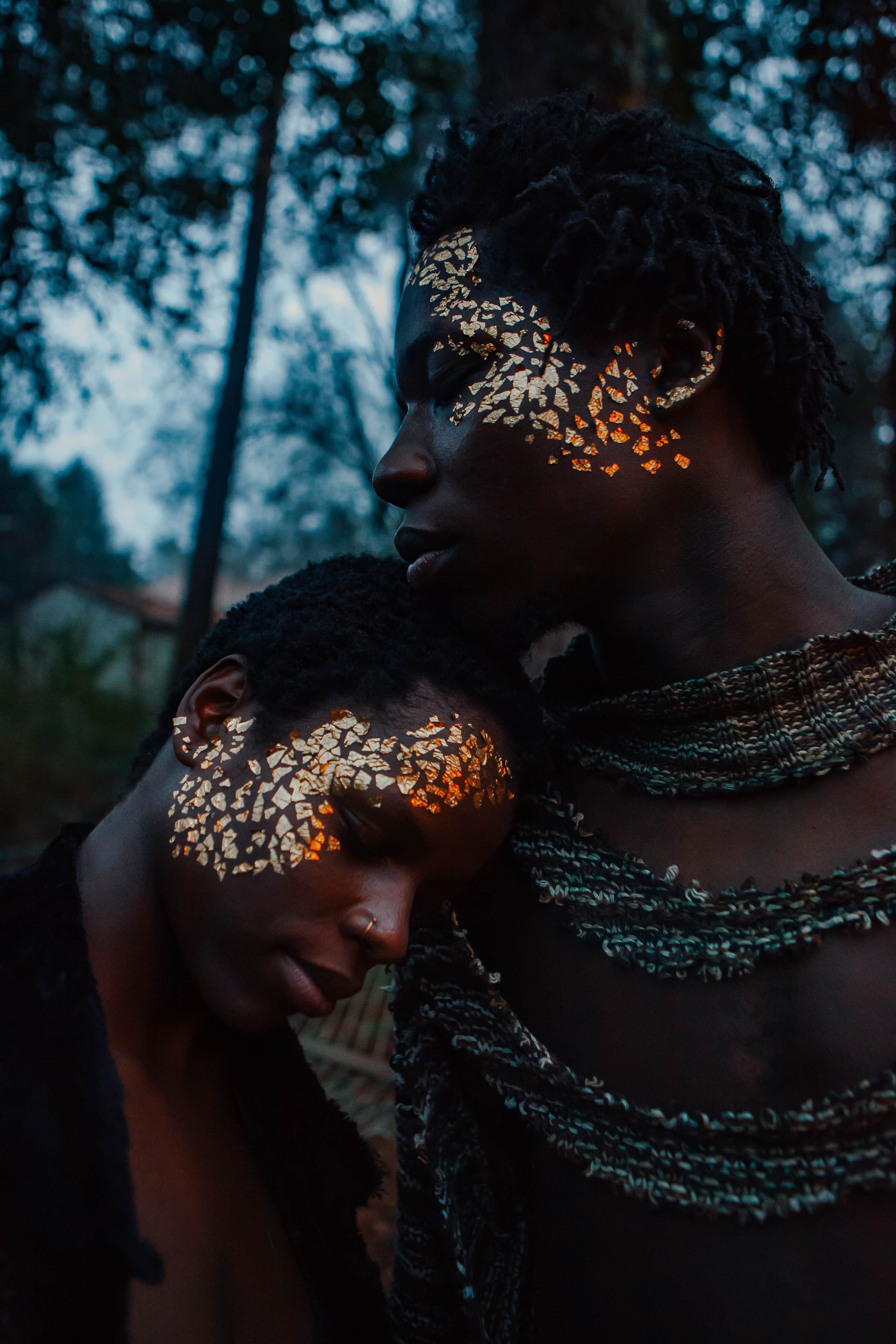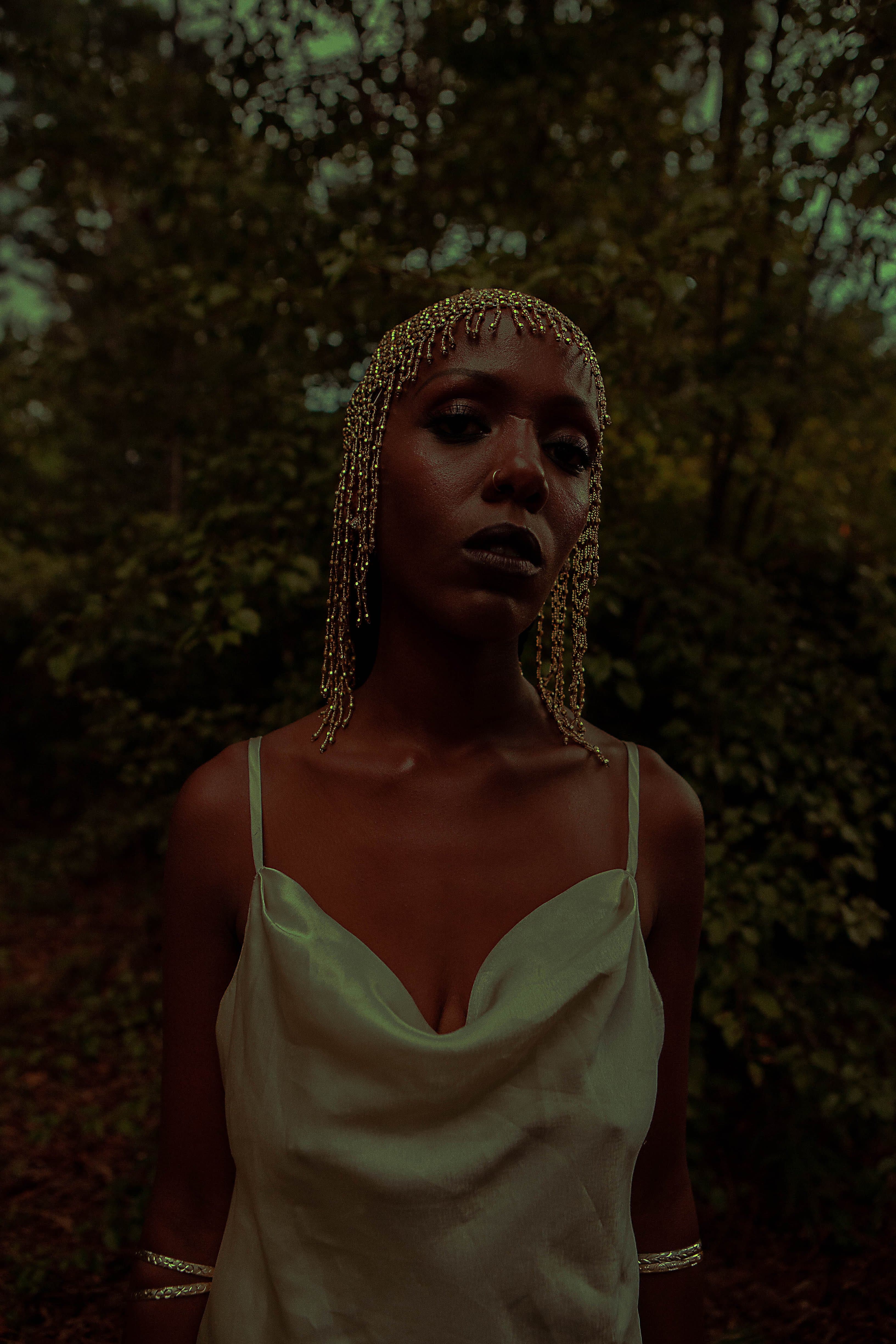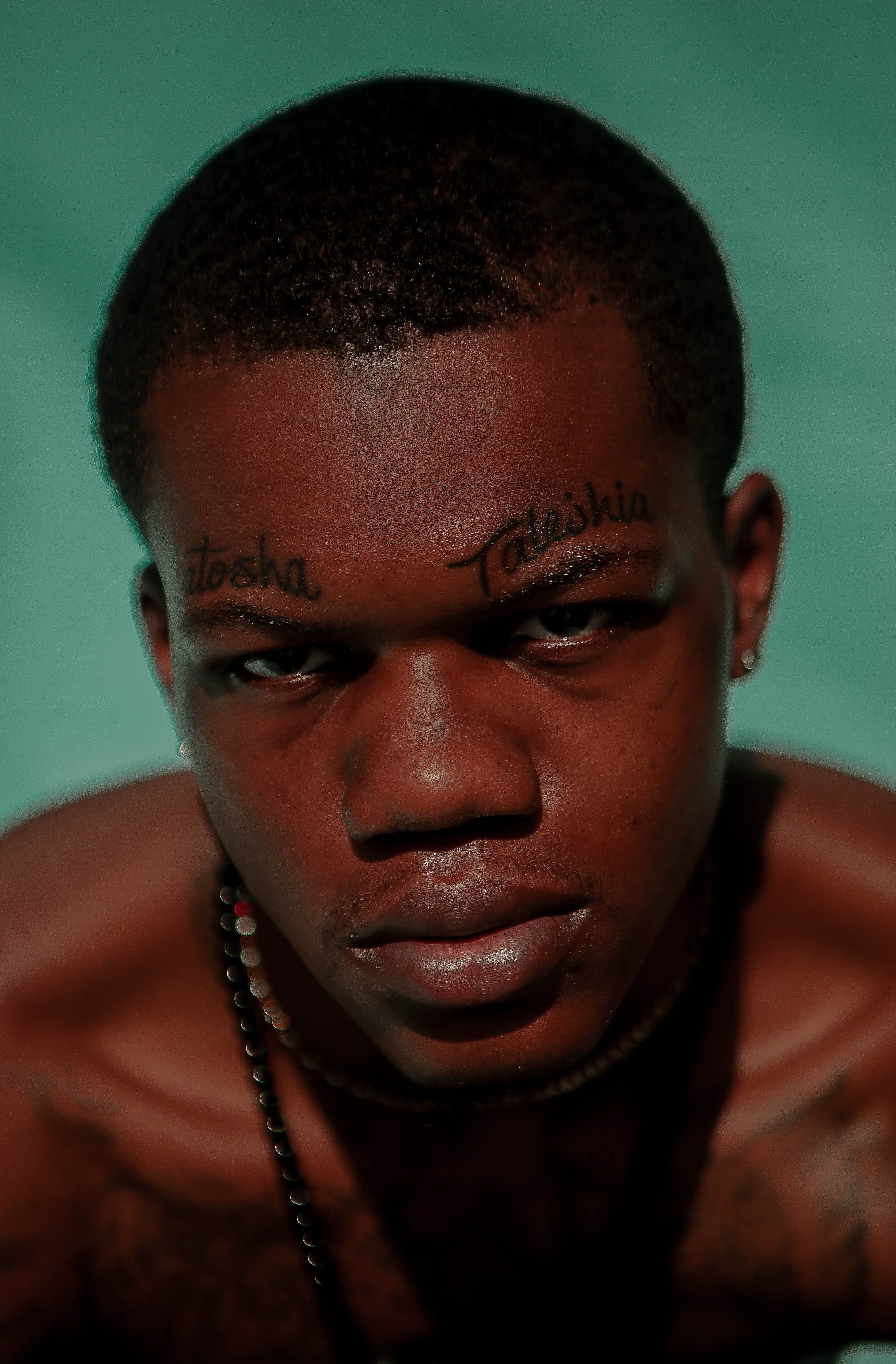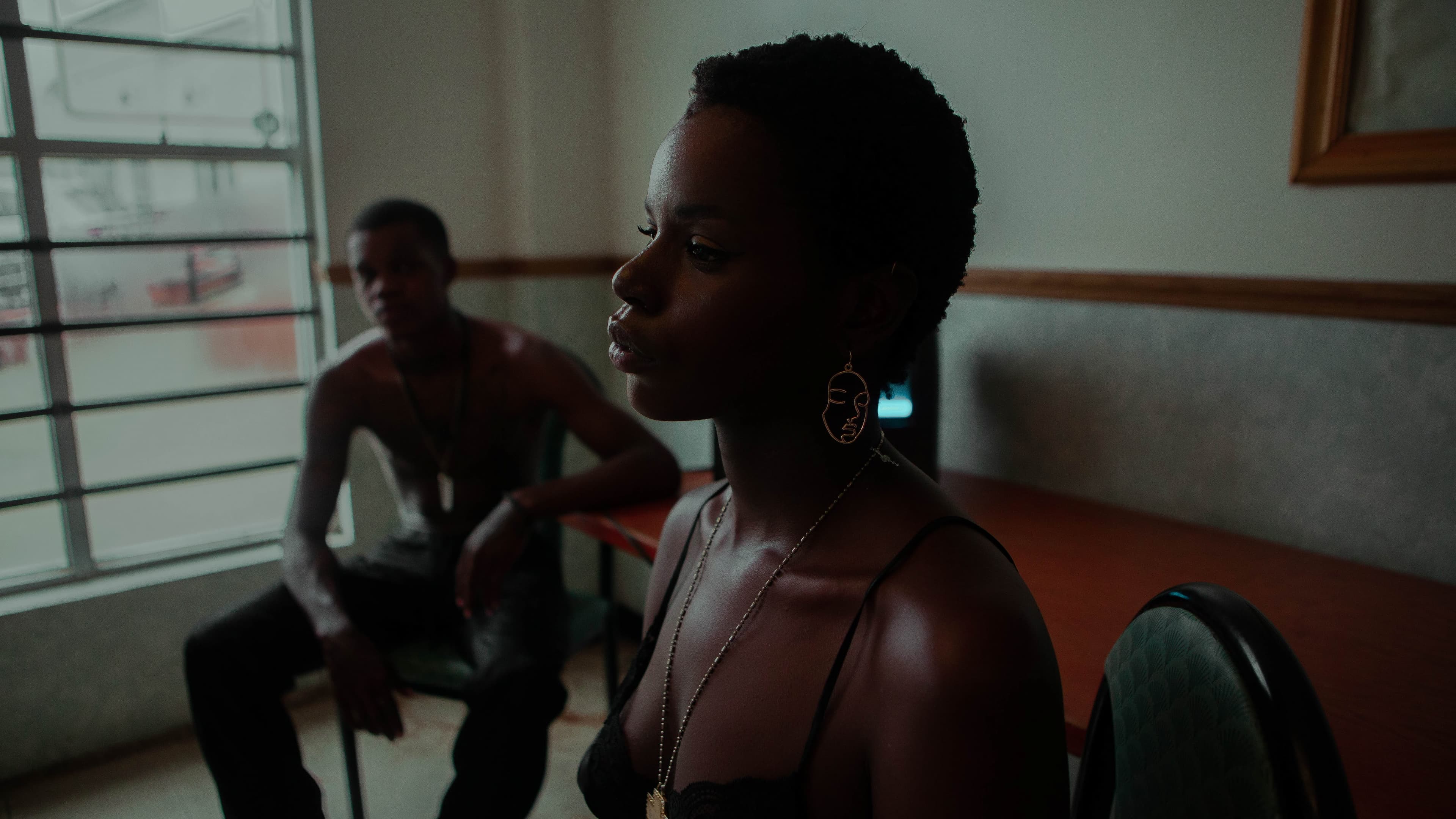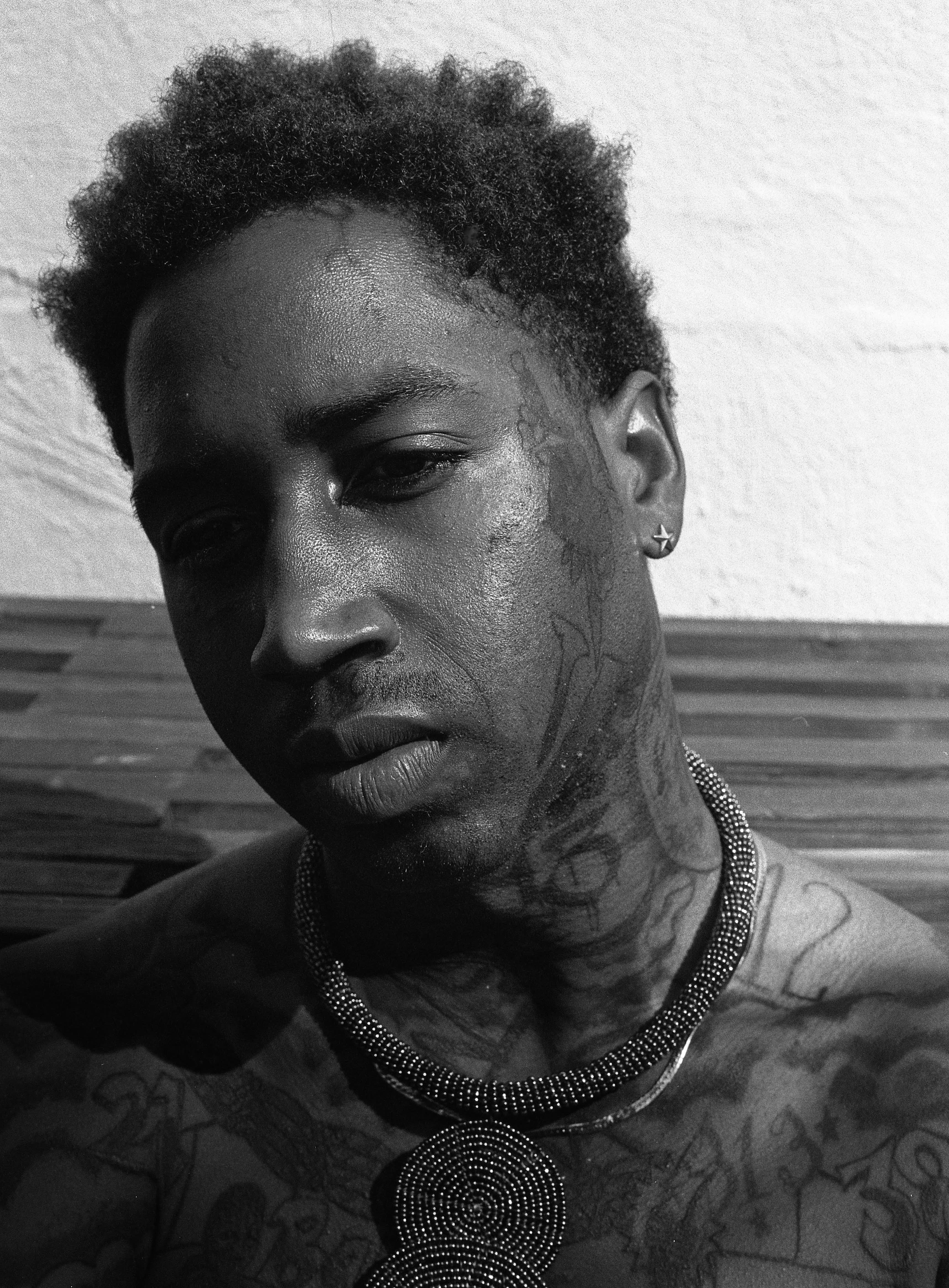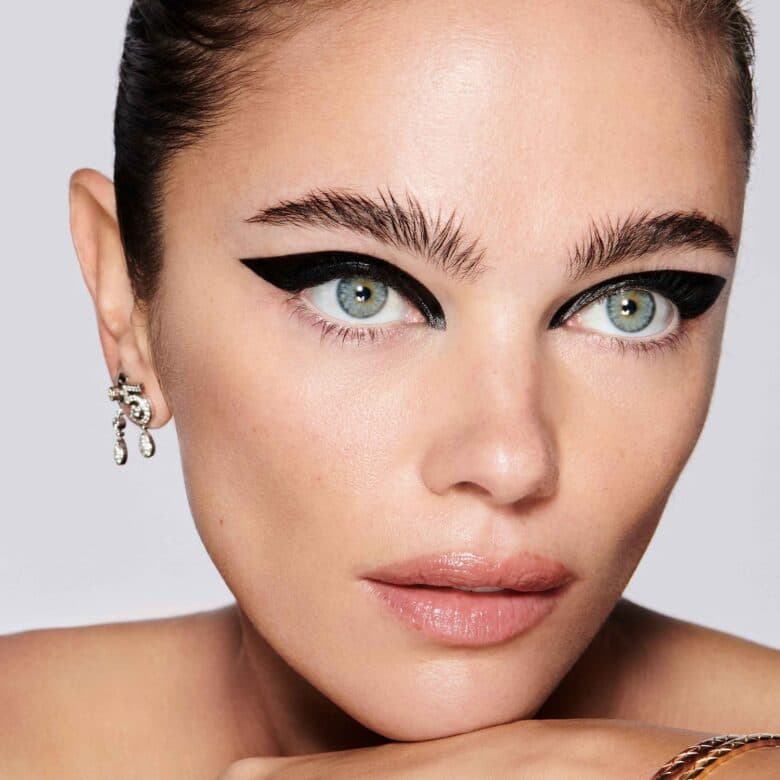The photographer redefining society’s perception of blackness
Aiming to capture moments in all their forms, Kennedi Carter exemplifies the beauty of rawness in her captivating photography. Reinterpreting what it means to be black in relation to fashion, creativity and society, the Durham-born artist emphasises the boundaries she wishes to break down. Explaining that “pop culture in America has created a small binary in which blackness is allowed to exist, especially in relation to fashion and media”, Kennedi wishes her photography would reinvent just this: “what it means to be creative, confident, and Black”.
From her empowered portraits to scene setting landscapes, Kennedi Carter’s work celebrates black experience and beauty. Choosing to focus on the power of diversity, Kennedi’s work brings people of colour’s narratives to the forefront, whether in a fashion shoot or documenting sociopolitical aspects of African American culture. Spanning from her emotive, When Thugs Cry shoot, to her captivating portraits of Sergio D’Arcy and Sasha Lane, Kennedi Carter’s photography seizes just what she wants them to – moments and movements.
Do you remember the moment you fell in love with photography?
I don’t think there was a specific moment that I fell in love with photography. I think with any kind of love, love of person, activity, or thing it occurs over time. I began photography in high school, I didn’t speak much my first 2 years, so I used art almost as a way to communicate with others. I used to paint but I was trash at it and painting took so long. I wanted to do an art that could be as hyper realistic as possible and offered nearly instant gratification. The more I photographed, the better I got and the more I fell in love with it. I’m still finding my niche, figuring out what I want to do with my art but the more photo work I’ve done the more I’ve realized that your niche constantly evolves as you grow into your artistry. I think when I came to that realization that I was in love with photography.
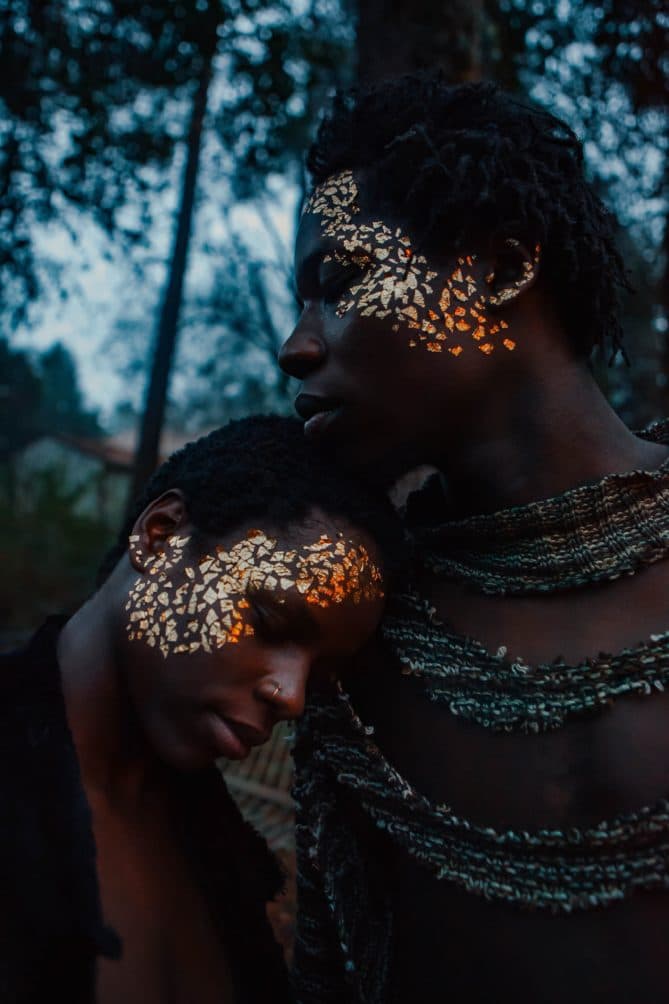
What photographers have influenced you the most?
Carrie Mae Weems: My photography Beyonce, her kitchen table series from 1990 is so vulnerable and intimate which is something I aim to imitate in my work.
Dana Scruggs: My internet homegirl, she captures and color grades black skin so beautifully and was recently featured in sports illustrated as the first black woman to photograph an athlete for the Body issue.
Micaiah Carter: I love his muted tones, when I started photography that was something that I tried and I still attempt to emulate in my photo work.
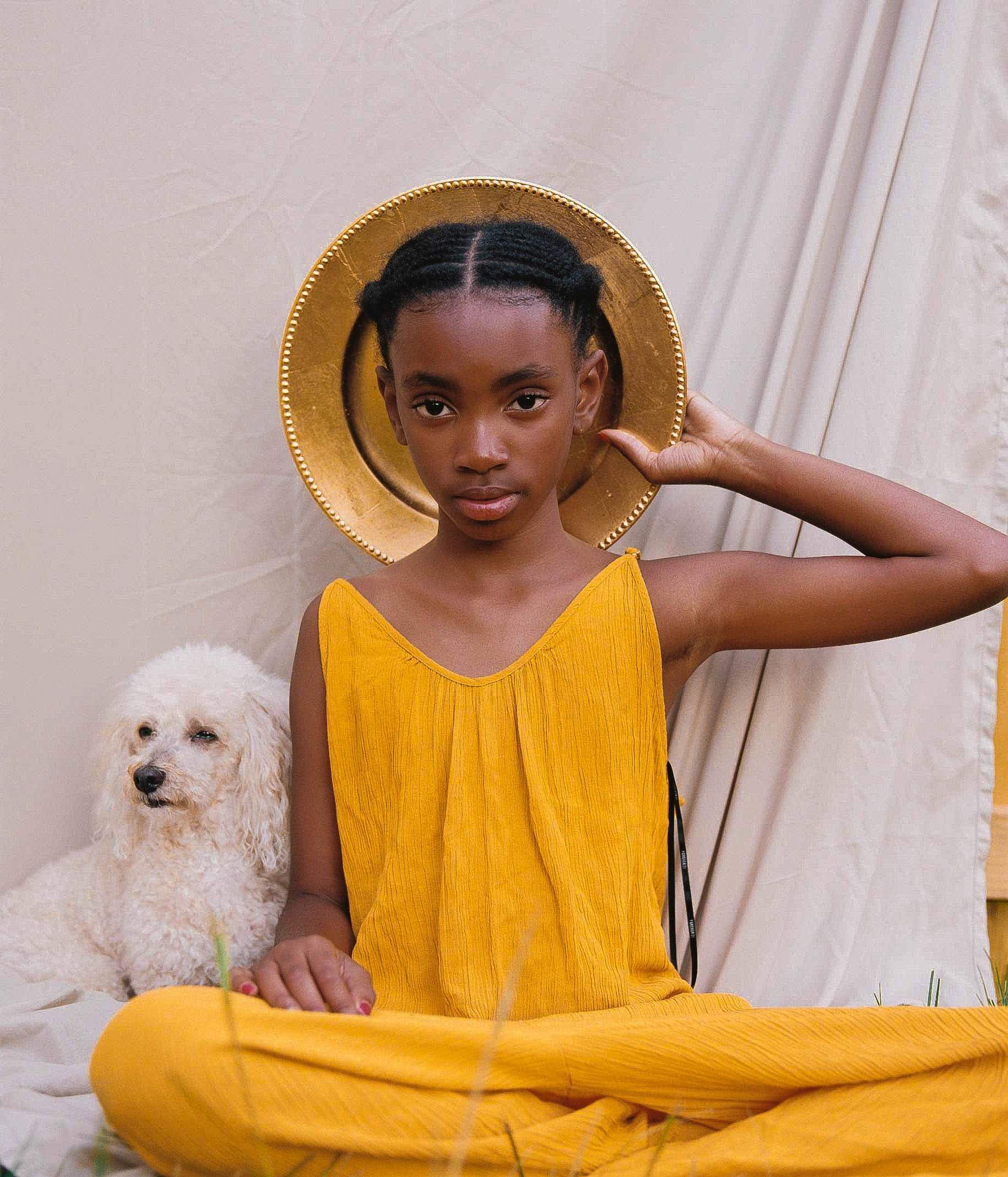
How would you describe your aesthetic in 3 words?
Black, Moody, Spiritual.
If you could only photograph one thing or person for the rest of your life, what who would you pick?
That’s an impossible question. The reason I love photography so much is because I have a bit of an obsession with faces. If I was forced to photograph one face for the rest of my life I’d end up hating photography.
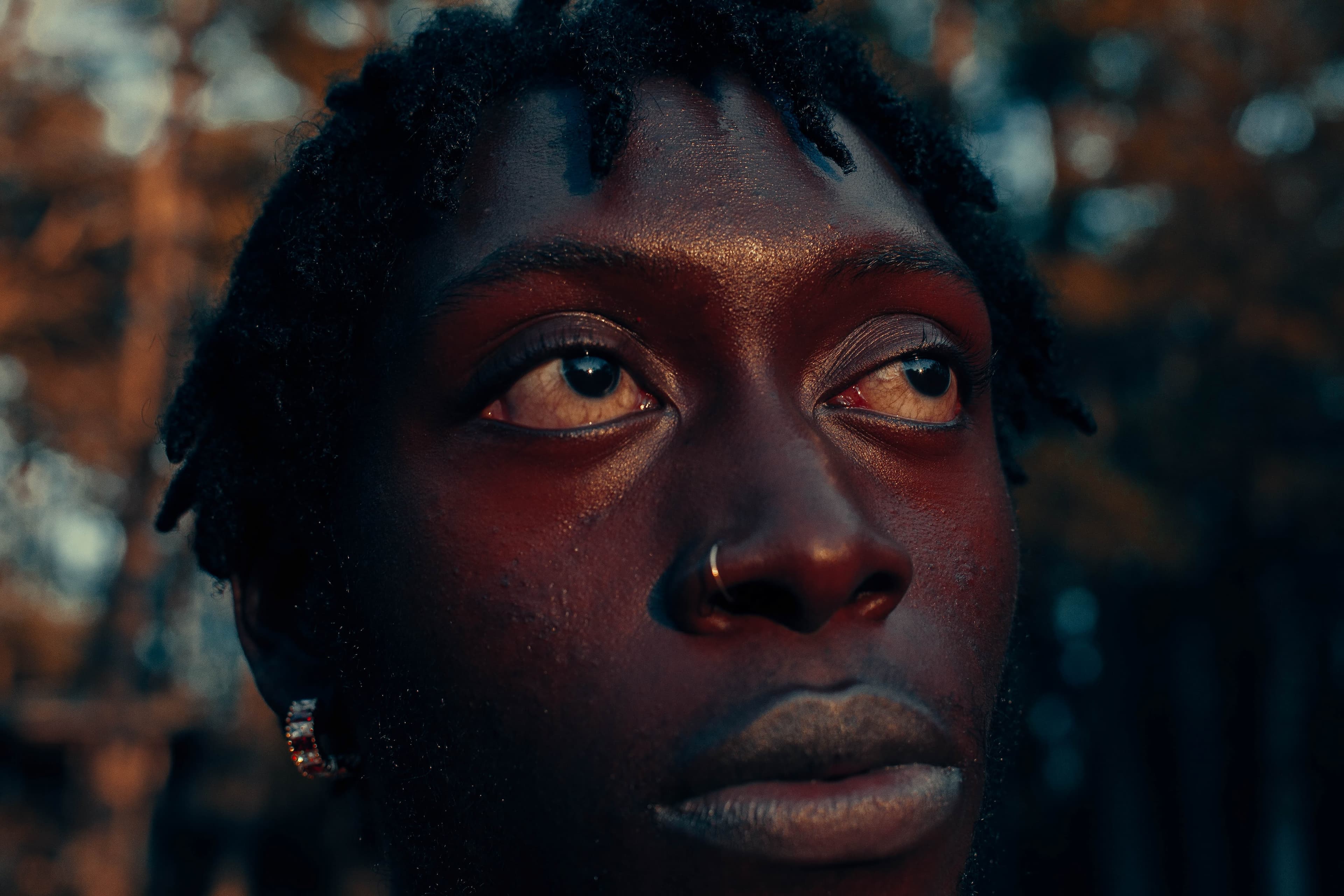
How do you think technology changes and social media are affecting photography?
Technology and social media has been a blessing and a curse in regards to photography. Technological advancements in photography has made it easier to have access to equipment with high quality results. As digital photography makes technological advancements digitally, film has become less prominent and increasingly extinct. The film processing industry has become extremely monopolized due to the fact that there are very few in comparison to pre digital photography, so processing costs are way expensive than they ever were. Increased technological advancements in photography also makes people underestimate the work that goes into photography, people can snap a photograph on their iPhone at an instant. People rarely want to pay for photo work anymore or don’t see a need for it, so often times I get low balled especially living in a smaller city. Social media has its drawbacks but it can also be a blessing as well. It takes the right person seeing your photograph for you to get a great opportunity and social media gives that more of a chance to happen but at times it seems like a lot of people do photography now for the sake of recognition and clout rather than FOR creating.
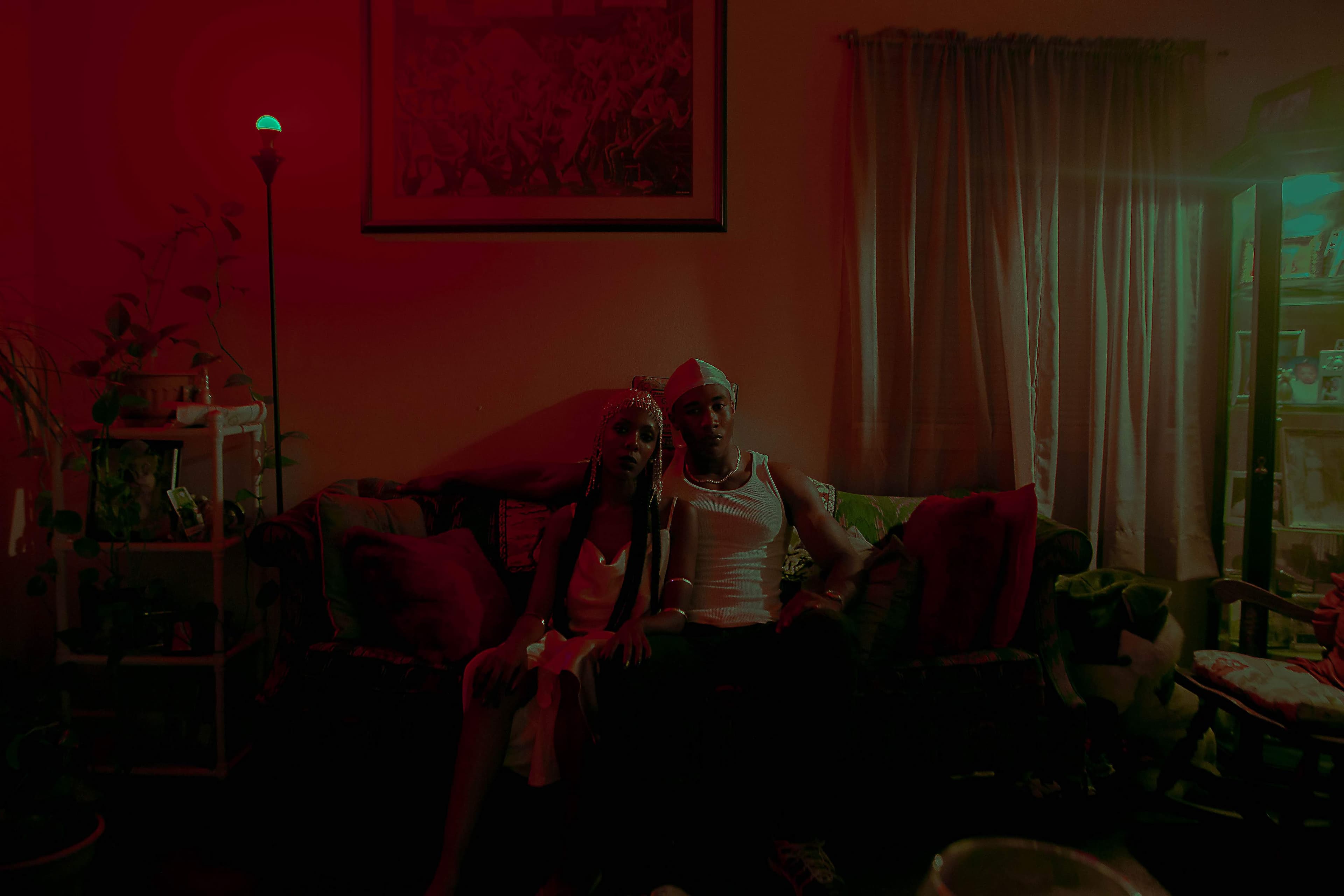
Do you think photography has the power to cause social/political change?
Photography definitely has the power to elicit social and political change. A historic example of this is Emmett Till, whose death was a catalyst for the civil rights movement. After being beaten to death at 14 years old by white men in the United States for “whistling” at a white woman (eventually revealed to be a lie) his mother made his funeral an open casket and images of his battered body were on every magazine cover. This image communicated the extent of racial tensions in America and became a catalyst for the Civil Rights Movement. You see images every day, sometimes you consciously register them, and other times you don’t. Images sociologically condition and affect how you interact with your surroundings in everyday life. Which is why representation is so important if you’re only seeing images of a particular type of person, a specific type of beauty, body type, or identity in general then you’re conditioned to believe that the standard is what you’re typically exposed to on a daily basis.
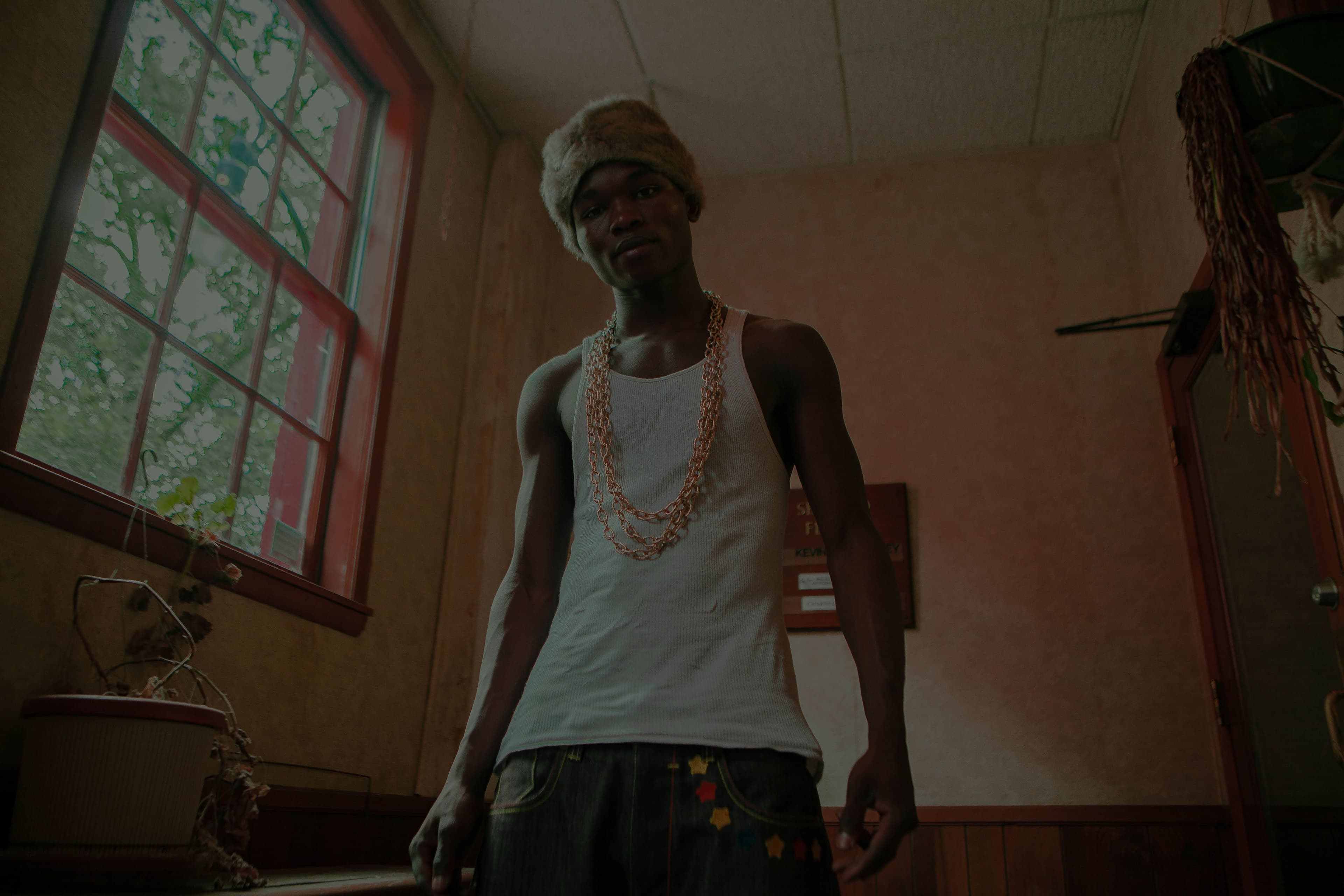
What’s next for you?
I’m currently in school at the University of North Carolina Greensboro studying African American Studies and minoring in photography. I’ve been working on a project based on the book In the Wake: On Blackness and Being by Christina Sharpe. In this book the author describes blackness as living in a wake of generational pain that still affects us today throughout the diaspora. After reading the book it made me deeply consider where, and in what ways is blackness allowed to exist inside of this ‘wake’ safely, in spaces filled with care and love. I’ll be continuing this project until early 2019 and hopefully I’ll hold an art show for it next summer. At the moment I’m honestly just attempting to exist, get through school, and find a job at a grocery store so I don’t have to choose between buying myself food, purchasing gas or processing my film.
